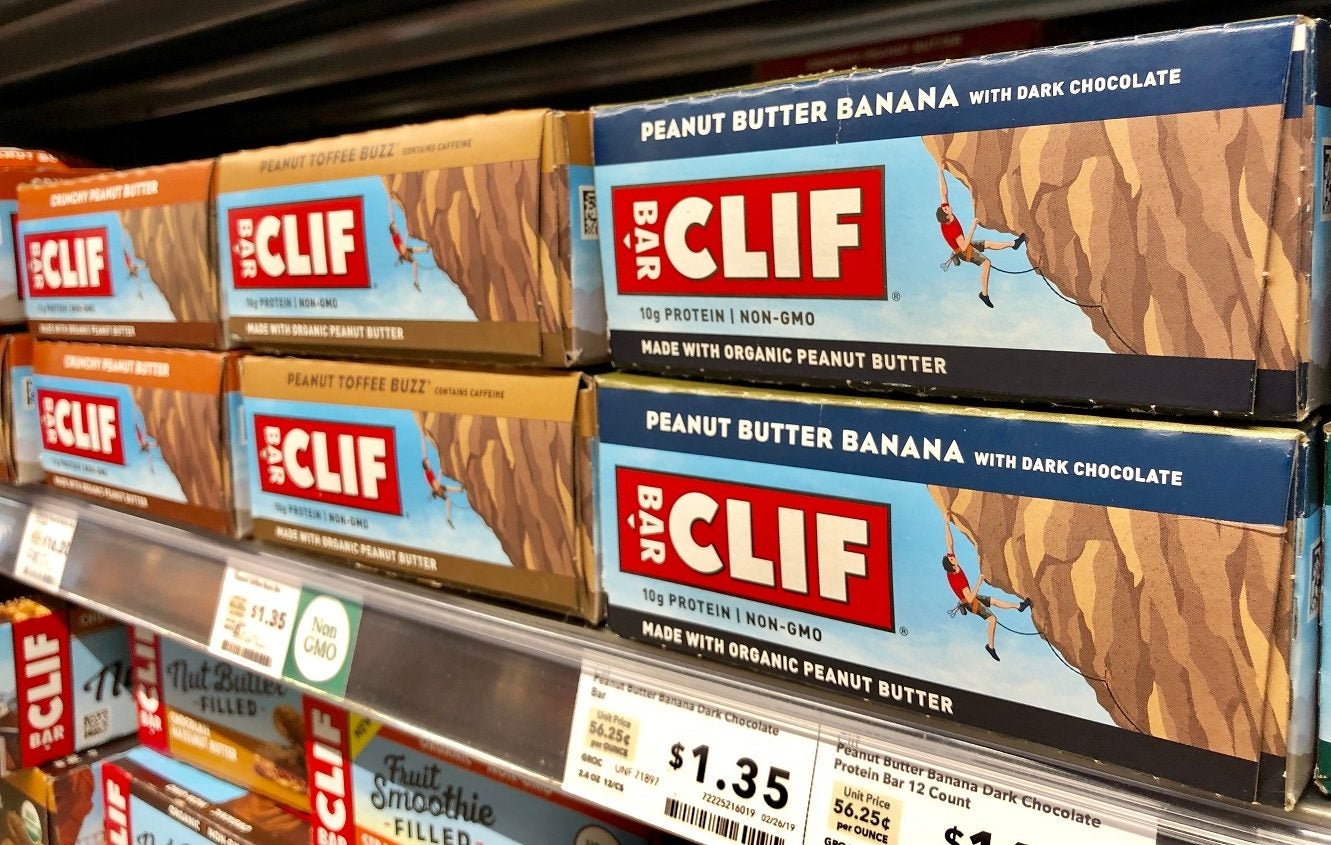
Kellogg’s surprise plan to split into three may have understandably grabbed this week’s headlines but there was also a notable piece of M&A announced by another of the world’s largest food companies.
The deal-hungry Mondelez International has agreed to pay US$2.9bn for US snacks maker Clif Bar & Co., its ninth acquisition in four years.

Discover B2B Marketing That Performs
Combine business intelligence and editorial excellence to reach engaged professionals across 36 leading media platforms.
Mondelez, home to brands such as Cadbury chocolate and Oreo biscuits, said the acquisition continues its expansion in baked snacks and will see it become a $1bn global snack bar player. As part of the deal, Mondelez will attain the Clif, Luna and Clif Kid brands, as well as manufacturing facilities in Idaho and Indiana.
“This transaction further advances our ambition to lead the future of snacking by winning in chocolate, biscuits and baked snacks as we continue to scale our high-growth snack bar business,” Mondelez chairman and CEO Dirk Van de Put said.
The move for Clif Bar – which includes what Mondelez called “additional contingent earnout consideration” – comes only a couple of months after another sizeable deal from the US giant in Mexico, when it snapped up local confectioner Ricolino from bakery behemoth Grupo Bimbo.
But, more relevant, the Clif Bar deal also builds on other transactions Mondelez has made in recent years to bolster its business on both sides of the Atlantic outside chocolate and biscuits. In 2019, the company acquired US-based Perfect Snacks, which makes refrigerated protein bars, for $284m. Last year, it bought UK sports-nutrition business Grenade.

US Tariffs are shifting - will you react or anticipate?
Don’t let policy changes catch you off guard. Stay proactive with real-time data and expert analysis.
By GlobalDataClif Bar has grown to become one of the major players in US snack bars. Wall Street analysts covering Mondelez said this week Clif Bar has expanded its sales at a compound annual growth rate of 9% over the past decade to around $800m.
However, Clif Bar’s sales growth has slowed more recently. In a note to clients after the deal was announced, analysts at US investment bank Stifel said the snack-bar maker has had a CAGR of 1% over the past three years.
The deceleration in growth could fuel suggestions Mondelez’s bid was fairly pricey but, reflecting on the deal this week, analysts appeared sanguine.
“The acquisition multiple of at least 3.6 times revenue stands above the level we would have expected for a business growing near 1% on a trailing three-year CAGR basis, which we believe reflects the strong brand equities and the longer term opportunity as the snack bar category continues to recover following the Covid-19 pandemic,” the Stifel analysts wrote. They noted the earnout that’s part of the transaction meant they believe “the acquisition price of at least $2.9bn could move significantly higher through the earn-out as sales trends continue to improve”.
There may be opportunities for Mondelez to use its distribution muscle to boost its new asset’s presence at home (and, perhaps, overseas, remembering, of course, how competitive the category can be).
Mizuho Securities’ John Baumgartner saw a range of opportunities available for Mondelez to capitalise on its new asset. “We see the potential to leverage the low-carb/high-protein attributes of Grenade in new Clif products, potential expansion of Clif into new categories and segments,” he said. That expansion, Baumgartner noted, could take in refrigerated products and take advantage of Mondelez’s “strong licensing programes”. He added: “Although Clif products are already well distributed across [US] grocery, mass, and convenience outlets, we expect enhanced depth of distribution made possible by Mondelez’s sales personnel and retail reach.”
And, for those still slightly concerned about the purchase price, there is the expectation Mondelez can eke out cost synergies from the transaction. “We estimate Clif EBIT margin of circa 10% (including. deal amortization) versus our Mondelez 2022 fiscal year forecast of 16.6% and North America’s 20%,” Baumgartner said. “Through 2025, we estimate cost synergies equivalent to 8% to 10% of Clif sales, including procurement and logistics benefits. Similar to the 2018 acquisition of Tate’s, we believe the inclusion of Clif products, within Mondelez’s US direct store delivery network, is possible following integration.
Overall, Baumgartner also noted that the valuation Mondelez put on Clif Bar was “comparable” to similar deals in the recent past, such as Mars’ move for control of Kind in 2020 and Kellogg’s purchase of RXBAR three years earlier.
And, reflecting on Mondelez’s recent flurry of acquisitions, Erin Lash, sector director at US financial services firm Morningstar, believes the company’s appetite has yet to be sated. “Over the past four years, the firm has added nine brands to its mix – almost $3bn in annual sales, growing in the high single digits – and we anticipate it will remain a consolidator, with a hunger to expand in untapped categories and/or geographies from time to time,” she said. “Nevertheless, we don’t believe management is merely chasing growth.”
A pertinent point as we could see the next deal involving Mondelez being one that involves assets going out the door. On the other side of the ledger, Mondelez has announced plans in May to sell its chewing-gum business in developed markets and offload cough-sweets brand Halls, assets that have been in the doldrums for a while.


